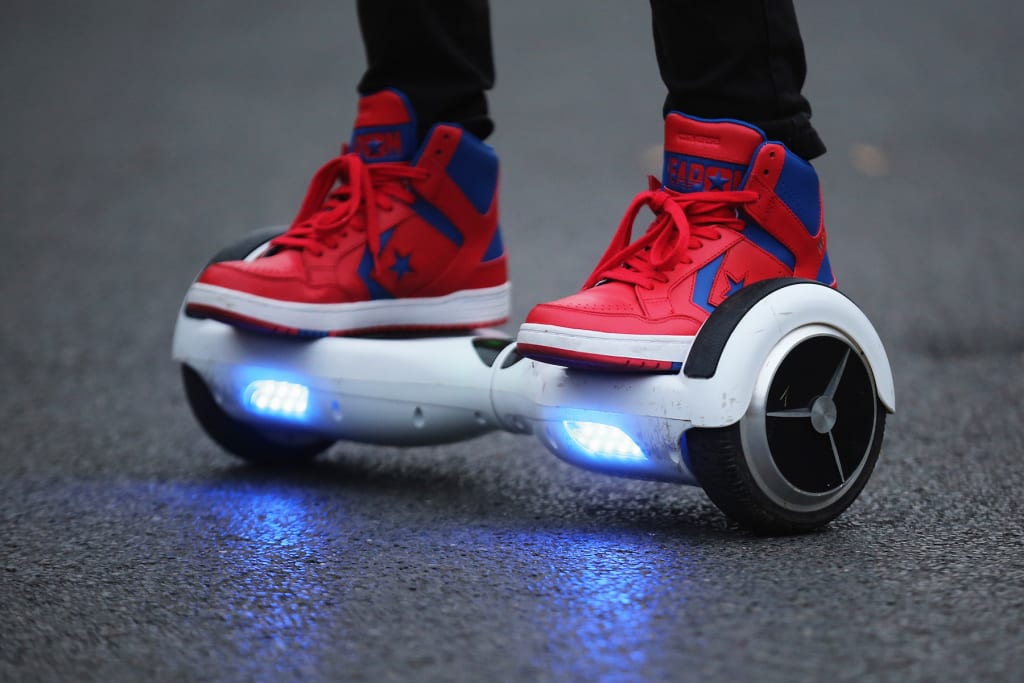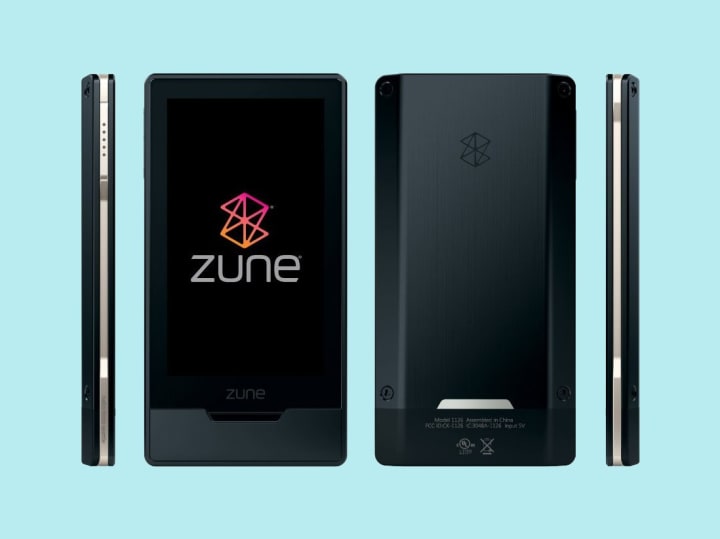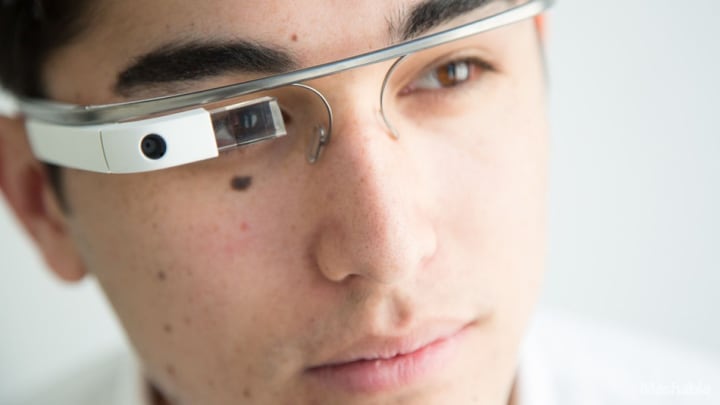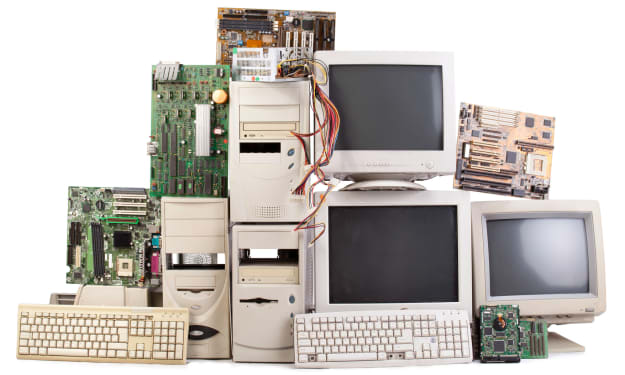
There's no shortage of technological failures out there; Apple, one of the now largest companies in existence, once created what was called the Apple Newton and, one that was far worse, a gaming console called Apple Bandai Pippin. Now, not all tech companies are supposed to make something revolutionary, or enhancing to society, but it turns out that the ones who made some of the biggest tech failures turned out to have shown us all just what exactly needs to be fixed in the industry, and how best to revolutionize that ideal as a whole.
Many of these tech failures weren't failures up until something else came around and beat them at their own game, or simply faded by way of stupidity in the first place (looking at you Hoverboard). In many cases, the few companies that actually made it big only to fail were simply ahead of their time, but even those who just plain failed still brought concepts of unending wealth to both technology and the development of it as well. For nostalgia's sake, and maybe curiosity as well, let's dive into some of the worst tech flops of all time and see exactly what tech product did it worst of all (again, looking at you Hoverboard).
AOL
Anyone raised in the 1990s will remember that all-too familiar sound "You've got mail!" or may even recall the slow, almost painstaking steps it took to even get on the net with its dial up service. American Online was certainly one of the most memorable of all biggest tech failures, but it also provides us with a little history; some nostalgic, some educational.
AOL revolutionized social networking with its Instant Messaging service, one of the very first operational buddy lists and messaging applications in existence. However, what AOL taught us all was that the internet can always be faster, and it's free! With the introduction of Gmail by Google and MSN Hotmail, AOL eventually died off by its limited subscription base and a generally slow ISP when compared to the relatively newer services reaching the market.
Microsoft Zune

The thing first saying "cool it with your iPhone addiction," the Microsoft Zune finds itself among the biggest tech failures for proving that the iPod was (and still is), by far, one of the most fundamental music players ever built. Zunes were first released back in 2006 and were among the first music players to introduce a neat Zune-to-Zune sharing function, which ended up falling flat like the very tech itself. Apart from that, the Zune also offered little in the form of video content and could not keep up with the iPod's record-breaking phenomena, even with the release of the Zune HD.
While it met failure after failure, fist instituted by the lacking Zune sharing function that only worked on Wi-Fi and only allowed tracks to be played if acquired three times in three days (I honestly don't know why this was the case), the Microsoft mobile music player was soon put to good use in updating the Windows Phone technology. That's about all it's ever offered us.
Netscape
Now apart of Oath, Inc., a Verizon subsidiary, Netscape once was regarded as a powerhouse communications system and web browser well before the era of Google and Yahoo. It wasn't necessarily groundbreaking, only for around five years or so, until Internet Explorer took the cake, wherein literally 90 percent of its user base in the mid-1990s no sooner fell to 1 percent by 2006. Once a pioneer in the "browser wars," Netscape no sooner folded into historical terms.
Acquired in 1999 by the likes of AOL, another of the biggest tech failures, Netscape quickly turned into a dinosaur of technology, even after winning one of the most important legal and technological developments when beating Microsoft in a 1998 antitrust lawsuit. At least they made a hefty $4.2 billion before fading into the tech ether.
Sirius XM
Coming often standard in most cars in the mid-2000s, and once being heralded as among the most successful consumer electronics devices ever, XM Satellite Radio grew too quickly to stabilize itself in the industry. At the end of 2002, a year after its release, XM had accumulated around 350,000 subscribers, which would leap all the way to 5.9 million by 2005.
These considerations, however, meant little in the long run, as the company's rival, Sirius, rose into existence as of 2002, while XM was amassing debt from a variety of reasons; marketing costs, operating deficits, and capital expenses (for which Sirius itself would experience, as well). The two companies attempted to merge in 2007. At the same time as the FCC were reviewing this request, and amid their cash flow dwindling period, both companies also so a drop in subscriptions, which led to their being deemed one of the biggest tech failures by late 2009. Neither XM nor Sirius made any revenue.
Google Glass

With an operating system as Google and a price tag of $1,500, the Google Glass was easily one of the most anticipated of all the biggest tech failures. And, yes, it did end up failing. Talked about mostly throughout 2013 and 2014, the sweet futuristic eye wear ended up even garnering a monicker: "Glasshole."
While it may have been thought of as among must have tech gadgets you can't leave home without, the Google Glass turned out becoming the exact opposite. Mainly due to the fact that the device could take films practically anywhere, most people were freaked out by the tech, which led to its banning in a variety of places, like bars, movie theaters, and restaurants. Apart from that, it also turned out to have a terrible battery life, unsuitable interface, and just looked plain stupid. At least it still has its uses in the business industry, albeit slim.
MySpace
Who can forget MySpace? Almost every teenager from the 1990s also had a MySpace along with their AIM (before that hit the hay). Selling in 2005 for a hefty $35 million, the once globally assertive social media website turned to music as a vice for its fall to Facebook. How that's panning out honestly beats the hell out of me, but it's still around, so that's a good sign.
What made MySpace so popular was its extreme versatility and page content that could be upgraded from one's background and layout coloration, to personal music and friend's lists. When Facebook came in 2009 with nearly 1.86 billion, it was a no-brainer that MySpace was headed to the grave.
Hoverboards
If you didn't hate the people riding them, then you were probably one of the people riding them. Those freaky, two-wheel ridable sideways skateboards were not a thing of the future, as everyone had claimed them to be. In fact, they were so un-futuristic they were practically immediately deemed among the biggest tech failures ever.
Released in 2015, those gaudy, light up Hoverboards that were really just scooters ended up catching fire months into their release. Not every device turned out this way, as Amazon quickly tried to stop this by vetting particular brands, only until the Consumer Product Safety Commission deemed them unsafe as of February 2016. Not only did they run into technical issues, it turned out that even more people were being injured by the devices, which doomed them from the get.
Samsung Galaxy Note 7
Probably one of the few more recent gadgets among this list, the 2016 Samsung Galaxy Note 7, an explosive-maker's dream come true, proves to be one of the most dangerous of all the biggest tech failures. Ironically, it's one of the few tech products that exploded both figuratively and literally.
The Note garnered a huge following upon release. Tech gurus raved over the new camera, its upgraded S Pen, and the new water-resistant component... right up until they literally started exploding. Samsung quickly recalled 2.5 million devices, a worldwide recall that led to their subverting the mistake with safe replacements that were also defunct. These "safe replacements" ended up causing the evacuation of a Southwest Airlines flight and made Samsung halt sales as of October that same year.
Segway

It's not always a good look when the very designer of a technological wonder dies using the very same device, as is the case with the Segway (whose creator drove off a cliff while riding one). Beyond this, the rather ugly looking electronic wanna-be hoverpad scooter contraption ended up costing $5,000 to own and only made you look like an idiot while riding one.
By 2004, three years after its initial release, and following President Bush's little tumble off one, the Segway became one of the biggest tech failures. The Segway surely revolutionized how we experience short motor transportation, if only in realizing that it's better just to drive, but it also gave us some neat technology like self-balancing navigation—no, that's really it. At least it's still in use (if only by the likes of police officers and postal workers).
Nintendo Virtual Boy
Virtual Reality before virtual reality even existed can be something Nintendo provided, despite the fact that the Nintendo Virtual Boy was anything but one of the best gaming consoles (probably why you've never heard of it, if you haven't). It was released way, way back in 1995, surprisingly sold for only $179 and was not meant to be played for more than 15 minutes (yikes).
Nintendo's first predictions were held at an appreciative 3 million in sales, yet they didn't even break a million (selling around 770,000 units in total). Not soon after, Nintendo scrapped the entire project and went on to revolutionizing their Game Boy systems, which they should have stuck with to begin with. For one, the Virtual Boy was something of a revolutionizing technological flop, then on being deemed among the biggest tech failures, but it still gave us one of the very first iterations of VR ever.
BlackBerry
For a time, the all-too familiar handheld device that had its own messaging service similar to the now iMessage concept, BlackBerry once dominated the handheld mobile industry. Though at first mostly used by business types and corporate world individuals, it no sooner broke out into the commonplace with such iterations as the smaller, more versatile Curve and the touchscreen Storm.
Despite its revolutionary Apple-before-Apple kind of mentality in overtaking the industry, BlackBerry quickly fell away from the spotlight and soon became one of the biggest tech failures ever, even if they're still around. For revolutionizing the idea of smartphone technology, the BlackBerry itself was an iconic rendition of tech before its time, until Research in Motion, as they were called back then, remained stubborn and couldn't keep up with the iPhone-friendly market.
About the Creator
Ryan Epps
A cosmic adventurer rendering wayward letters into infinite lengths of conception and prose, like quantum streams of pneumatic information






Comments
There are no comments for this story
Be the first to respond and start the conversation.